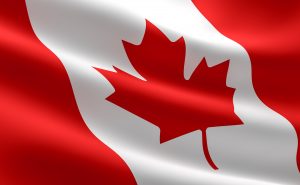
Recovery of Canada’s plastics, chemical industries will be based on investment attraction, CIAC head says
Canadian Plastics
Canadian Plastics Market ForecastCIAC president and CEO Bob Masterson also outlined the chemistry and plastics industries’ role in Canada’s economic recovery in a presentation to the federal government’s Standing Finance Committee.

Image Credit: md3d/Adobe Stock
The federal government needs to step up its its engagement and improve investment conditions in order for Canada’s chemistry and plastics industries to play their proper role in the nation’s economic recovery, the head of the Ottawa-based Chemistry Industry Association of Canada (CIAC) said.
In a Dec. 7 virtual presentation to the federal government’s Standing Finance Committee, CIAC president and CEO Bob Masterson spoke on the chemistry and plastics industries’ role in Canada’s economic recovery and made several observations about these industries at present:
- Demand in key Asian countries has already rebounded to pre-COVID levels. Inventories are at the lowest levels in a decade and, despite COVID, there is a return to record global levels of chemistry and plastics production. “While experiencing a short pause due to COVID, this $4 trillion global industry looks ready to return to its normal robust multi-decade rate of expansion, which amounts to nearly 1.5 times global GDP each year,” Masterson said.
- Canada’s chemistry and plastics sector “holds many advantages and, with the right regulatory and investment conditions, could better and fully participate in the global expansion of the industry,” Masterson said. Moreover, he added, key provinces – including Quebec, Ontario, Alberta, and British Columbia – have all identified and prioritized the opportunities for investment and economic growth in the chemistry and plastics sectors.
- Despite the interests and activities of the provinces, “the desired chemistry investments are less likely to occur without increased engagement and improved investment conditions within the realm of federal responsibilities,” Masterson said.
Masterson then made a few specific recommendations to the committee:
- The committee should consider extending the full 100% Accelerated Capital Cost Allowance introduced in the 2018 Fall Economic Statement with no phase-out to 2030 and consider making it permanent. “This will send an immediate signal for companies who have deferred projects during the pandemic or global investors contemplating new investments that Canada is open for business and respects the timelines for major capital investments,” he said.
- The committee should consider establishing a Plastic Technology Innovation Fund (PTIF) with an initial allocation of $200 million to further research and development of groundbreaking circular economy technology applications in Canada. “A focused initiative like this at scale will send a signal that Canada intends to be a leader in the development of advanced recycling technologies,” Masterson said. “The timing of this initiative in 2021 could be the cornerstone for Canada’s hosting of the World Circular Economy Forum.”
- The government should commit to an overall review of business taxation and regulation as Canada emerges from the COVID-19 pandemic. “[This] will require investment and it is critical that Canada’s tax and regulatory codes are optimized for attracting investment and innovation in the 21st century,” he said.
Economic recovery must be premised on investment attraction, Masterson also said, and while COVID has put a strong pause on new investments in our and other sectors, “we must remember that Canada’s investment outlook was troubling even before COVID.” This was highlighted by the Barton Advisory Council, he noted, and continues to be well articulated by the Business Council of Canada and Canadian Chamber of Commerce. “I urge you to reflect again on their analysis and recommendations,” Masterson said.
